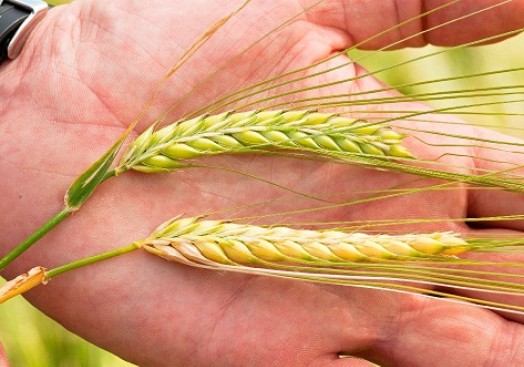Seed inspections
Date published: 1 January, 2015

The production of seed crops – such as potatoes, cereals, fodder, oil and fibre – is an important part of Scotland’s rural economy and food production chain.
- Scotland supplies about 75 per cent of all seed potatoes grown in the UK and has a large export market
- figures from 2013 show that the Scottish potato sector is worth £287 million
- the production of seed barley in Scotland is at the base of the £4.3 billion Scotch whisky industry
The sale of most agricultural and horticultural seeds is controlled through a series of seeds regulations, which are based on European Union-wide directives.
They make sure seeds meet the minimum quality standards wherever they are sold in the European Union.
Scotland plays an international role in setting standards for seed production and participates in and adheres to standards and methods set by:
- the International Seed Testing Association
- the Organisation for Economic Co-operation and Development
- United Nations Economic Commission for Europe
What we will look for
The standards for all seed species are enforced through a combination of seed sampling, testing and inspection of growing crops and of seed material in store.
Depending on the species, we may check your crops or seeds for:
- isolation
- varietal and species purity
- presence of disease
- germination
- moisture content
- labelling
- packing requirements
The certification process requires that all seed that is to be marketed must meet the minimum standards that apply to it both in the field and as harvested seed.
Some of these inspections are carried out by members of the seed industry who are licensed for this work by Scottish Ministers.
A system of official checks is in place to monitor trade inspectors, samplers and licensed seed testing stations, ensuring consistency and quality.
Inspection outcomes
If we find that your crops do not meet the necessary standards, an opportunity to rectify faults through rogueing or further dressing may be allowed.
For example, this could involve removing plants that are diseased or not true to type in the field or to pick out tubers which don’t meet the required standards.
Where issues can’t be resolved, your crops may be downgraded to a lower grade or even be refused a certificate, reducing the value of the crop.
Where we find serious or repeated non-compliance with the seed and marketing regulations, we will consider enforcement, which may ultimately lead to prosecution.
Further information
You can find out more about seed production and marketing in Scotland on the Science and Advice for Scottish Agriculture (SASA) website.
You can also find out more on testing and international trading standards at the following pages:
International Seed Testing Association
Download guidance
Click 'Download this page' to create a printable version of this guidance you can save or print out.
